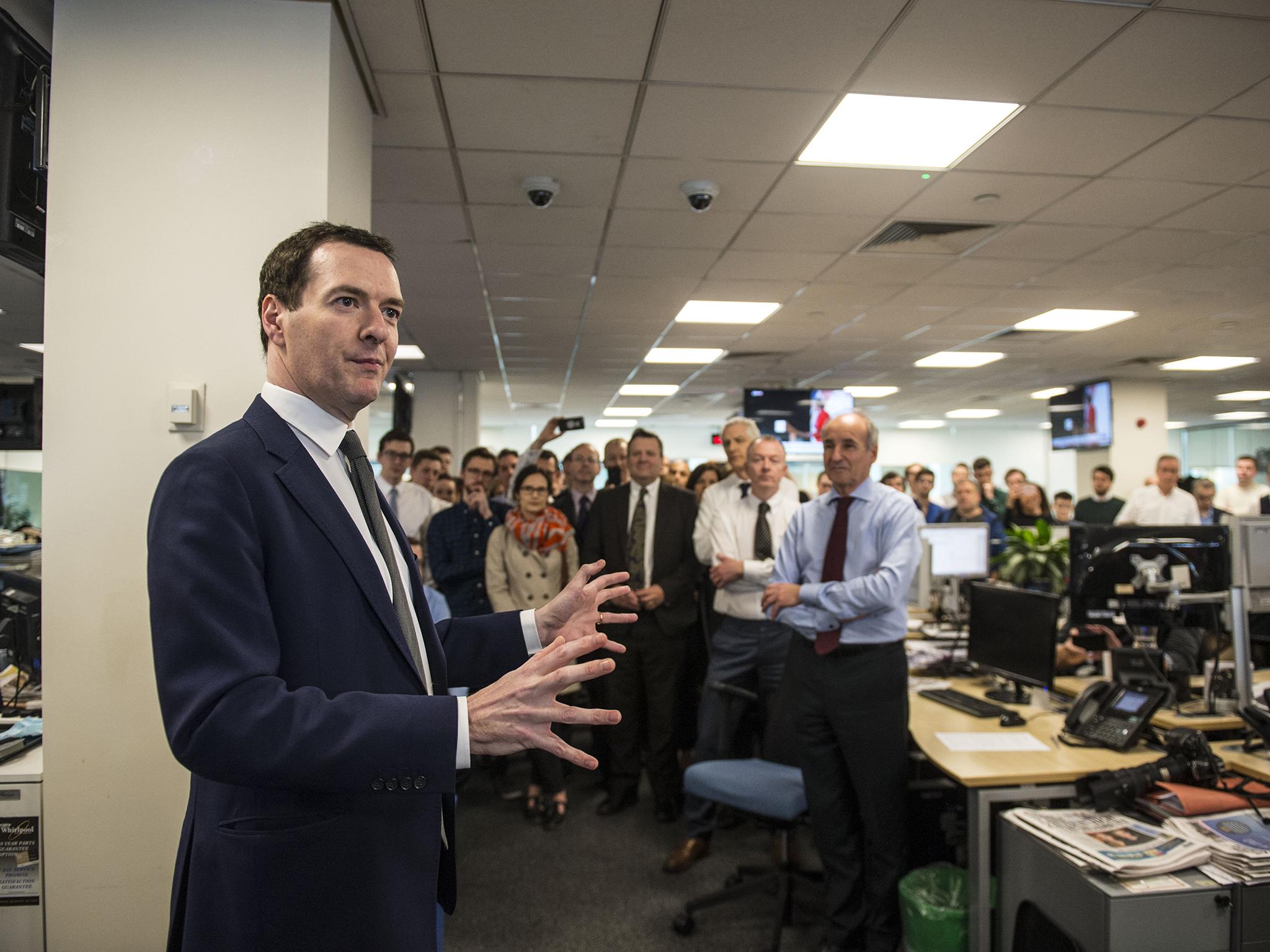George Osborne's editorship of the Evening Standard only adds to public distrust in politicians
In a head-to-head debate with Independent founding editor Andreas Whittam Smith, Labour MP Andrew Gwynne argues that the country deserves a tighter system of rules around the work that former ministers and MPs take on


Your support helps us to tell the story
From reproductive rights to climate change to Big Tech, The Independent is on the ground when the story is developing. Whether it's investigating the financials of Elon Musk's pro-Trump PAC or producing our latest documentary, 'The A Word', which shines a light on the American women fighting for reproductive rights, we know how important it is to parse out the facts from the messaging.
At such a critical moment in US history, we need reporters on the ground. Your donation allows us to keep sending journalists to speak to both sides of the story.
The Independent is trusted by Americans across the entire political spectrum. And unlike many other quality news outlets, we choose not to lock Americans out of our reporting and analysis with paywalls. We believe quality journalism should be available to everyone, paid for by those who can afford it.
Your support makes all the difference.The controversy around George Osborne’s appointment at the London Evening Standard reveals weaknesses in the policing of potential conflicts of interest and a Government that has no interest in cleaning up the system.
The rules that exist around business appointments were established to counter any suspicion that the decisions and statements of serving ministers might be influenced by the hope of future rewards in the form of a job offer or monetary gains. The disregard shown towards these rules by Osborne only adds to distrust that much of the public have in politics, and it does a disservice to those Members of Parliament that respect the trust placed in them by their constituents. Indeed, I am glad to say that this current case is not representative; many MPs spend every hour of their day fighting for their constituents’ interests. They ensure that proper attention to the representative role of an MP is given, as a vocation to public service should require.
It is in the public interest that former ministers with experience in government should be able to move into business or into other areas of public life – but to hold several time-consuming commitments that have a deep overlap with the political role of what is supposed to be a full time job as a Member of Parliament is impossible to defend.
The current system is based on a shared understanding that we are all proud to serve and represent our constituents and appreciate the responsibility that comes with this. How we conduct ourselves in Parliament is governed in part by a respect for this responsibility and further through guidelines in the rules of the house and in the ministerial code, the latter of these providing the guidelines to be followed by former ministers when seeking employment.
The code states clearly: “On leaving office, ministers will be prohibited from lobbying Government for two years. They must also seek advice from the independent Advisory Committee on Business Appointments (ACoBA) about any appointments or employment they wish to take up within two years of leaving office. Former ministers must abide by the advice of the committee.”
And yet this is now the second time that Osborne has taken on an appointment prior to receiving advice from the committee. In October last year, ACoBA noted their concern after becoming aware – through the national press – of a new post taken up by Osborne. In a letter to the former Chancellor, Baroness Browning, the chair of the advisory committee, “noted with concern” that advice was sought after the public announcement of the post, and reminded that advice should be sought on all appointments. As the rules were not followed in this case, the committed reminded that it is “unable to offer retrospective advice on appointments that have already been announced”.
Many have argued that a more robust system is required to ensure that MPs are held accountable when a clear flouting of the rules has taken place. This was supported by an independent inquiry in 2012 that suggested that the body itself be abolished and replaced by a new Conflicts of Interest and Ethics Commissioner, similar to the approach taken in Canada. However, the Government rejected these proposals, providing assurances that the current system and the ministerial code were robust enough to prevent behaviour or actions that may, at worst, bring the House into disrepute or further the tragic low standing that politicians are held in by the general public.
It is clear that the Government now needs to reconsider its response to the 2012 inquiry and provide assurances that the current system has not provided another opportunity for a conflict of interest to be exploited.
The Government need to make clear that it will take action to investigate former ministers who appear to be in breach of the ministerial code in their failure to seek advice from ACoBA. And furthermore, I am calling on the Government to reconsider its response to the 2012 review and take on the recommendations of that inquiry.
We need to establish a stronger system able to command the confidence of MPs across both parties and of the public. It’s what this country deserves.
Andrew Gwynne is Labour MP for Denton and Reddish
Join our commenting forum
Join thought-provoking conversations, follow other Independent readers and see their replies
Comments